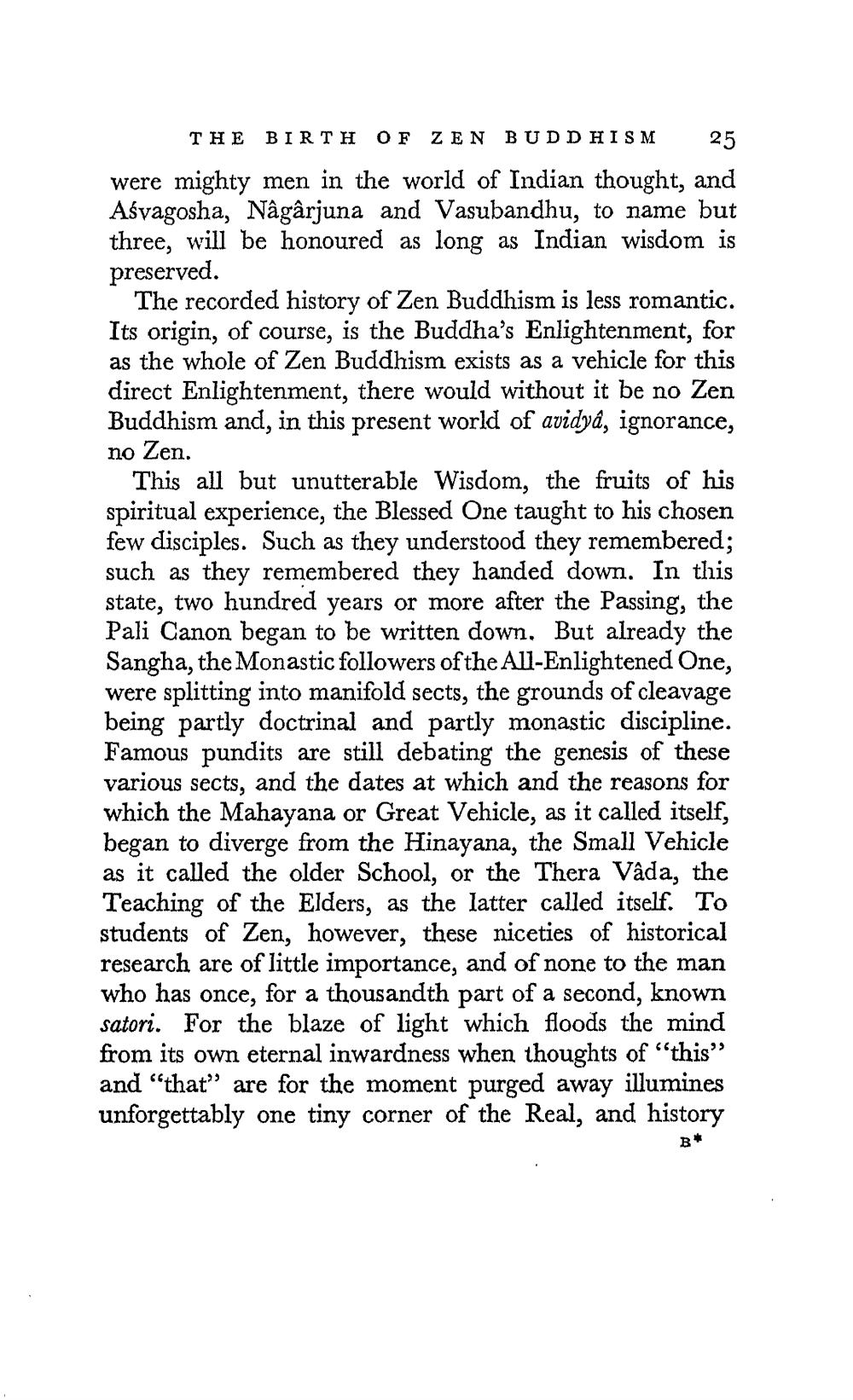________________
THE BIRTH OF ZEN BUDDHISM 25 were mighty men in the world of Indian thought, and Ašvagosha, Nâgârjuna and Vasubandhu, to name but three, will be honoured as long as Indian wisdom is preserved.
The recorded history of Zen Buddhism is less romantic. Its origin, of course, is the Buddha's Enlightenment, for as the whole of Zen Buddhism exists as a vehicle for this direct Enlightenment, there would without it be no Zen Buddhism and, in this present world of avidyâ, ignorance, no Zen.
This all but unutterable Wisdom, the fruits of his spiritual experience, the Blessed One taught to his chosen few disciples. Such as they understood they remembered; such as they remembered they handed down. In this state, two hundred years or more after the Passing, the Pali Canon began to be written down. But already the Sangha, the Monastic followers of the All-Enlightened One, were splitting into manifold sects, the grounds of cleavage being partly doctrinal and partly monastic discipline. Famous pundits are still debating the genesis of these various sects, and the dates at which and the reasons for which the Mahayana or Great Vehicle, as it called itself, began to diverge from the Hinayana, the Small Vehicle as it called the older School, or the Thera Vâda, the Teaching of the Elders, as the latter called itself. To students of Zen, however, these niceties of historical research are of little importance, and of none to the man who has once, for a thousandth part of a second, known satori. For the blaze of light which floods the mind from its own eternal inwardness when thoughts of this" and "that are for the moment purged away illumines unforgettably one tiny corner of the Real, and history




